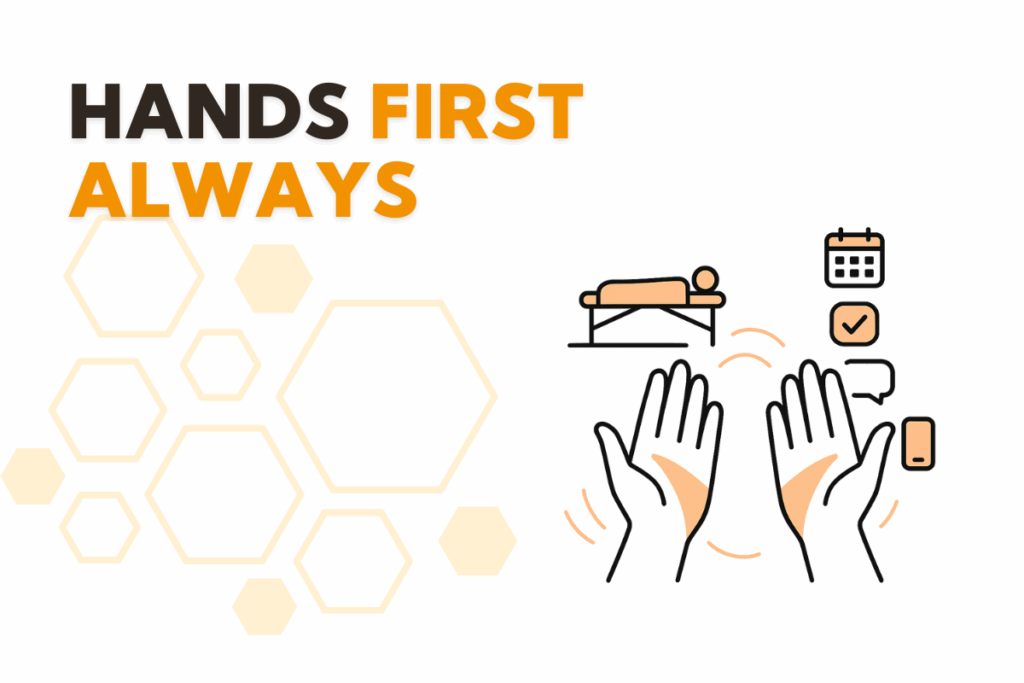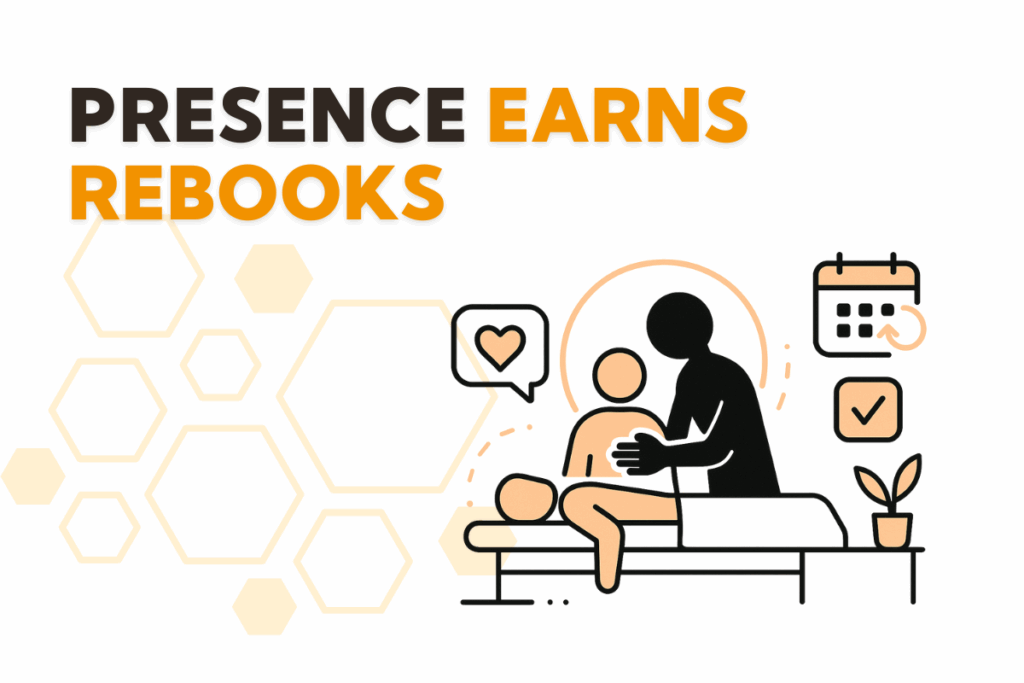Subheading: If your clinic runs on time yet the day feels thin, you are likely searching for practical ways to make sure clients feel valued without losing efficiency.
When operations get louder than care
Clients feel valued when your systems serve people, not the other way around. Picture a day with perfect intake, timely reminders, and clean notes, yet the first two minutes in the room feel rushed and rebooking softens. Therapists feel measured by clicks instead of connection. The result is a clinic that looks organized while the experience feels mechanical.
The problem beneath the friction
When clients feel valued, they stick with a plan, share honest feedback, and refer friends. When they do not, they price shop, cancel more, and read policies as punishment. Teams notice the shift and quietly burn out because their best work is relational, not transactional. Patient-centered care research points to small, human signals as the drivers of adherence and satisfaction. For a helpful primer, explore the Institute for Healthcare Improvement.
Signals you may already be seeing
The welcome is efficient but thin. Templated messages land in messy moments. First-visit rebooks dip even though reminders are on time. Your best people do quiet repair work after a robotic touchpoint and go home drained.
Why these moments cost real money
Trust fuels continuity. Continuity fuels outcomes and lifetime value. If clients feel valued, rebooks rise, recovery after cancellations improves, and review language shifts toward words like listened and cared for.

Design choices that make people the point
This is not anti-tech. It is pro human. Let tools carry the heavy lift while people own the moments that matter so clients feel valued at every step.
Protect the first two minutes of every session
Keep the opening screen-free. Greet by name, confirm one outcome, and say the plan in plain words. When the first two minutes are human, clients feel valued and ready to engage.
What to say
“Welcome, Taylor. If one thing feels 20 percent better when you leave, what is it. Here is the plan for today.”
Write policies as promises, not punishments
Reframe late and no-show text as shared fairness. Clear language that protects time while offering a dignified path to rebook helps clients feel valued instead of policed.
A kinder structure
State the why, state the rule, then offer a reasonable next step that keeps care on track.
Let people beat the system on purpose
Give each therapist a small grace budget they can use without approval. One thoughtful exception used at the right time can make clients feel valued and often leads to an immediate rebook.
How to test it
Run a four-week pilot, record grace uses, and track seven-day recovery. You will likely see high goodwill and low misuse.
Make automation sound like a person set it up
Automation should carry tone and context. Invite clients to share what matters in their own words, then use that detail in your touchpoints so clients feel valued throughout the journey. Use a simple online intake form that includes a “what matters most today” field, and reference it in your email text reminders. Short, human lines like “We will start with your neck and jaw so driving is easier after” signal attention.
Measure what people feel, not only what they do
Pair operational metrics with human indicators. Track first-to-second visit rebook rate, recovery within seven days after a late cancel, and review phrases that show clients feel valued. Ask therapists for a quick end-of-shift energy score to spot quiet burnout.
Real clinic moments and what to say
The rushed arrival
A client arrives stressed after traffic. Replace a scolding tone with a steady one. Say, “Thanks for getting here. We will focus on what helps most in the time we have. Here is the plan.” The message helps clients feel valued even when time is tight.
The policy backlash
A standard late-cancel note lands poorly. Repair with, “You received our standard message and this moment needed a person. I am here now. Let us find the fairest path that keeps your care moving.” The goal is to help clients feel valued while holding boundaries.
The thin first visit
Intake is perfect, rapport is not. Reset by naming one clear outcome and a midpoint check. Say, “By minute 30 we will reassess your shoulder. If the plan is not helping, we adjust.” Collaboration makes clients feel valued and involved.

Steps you can start this week
Two-minute rule
Declare the first two minutes screen-free. Greet by name, ask for one outcome, and state the plan. This simple ritual makes clients feel valued without adding time.
Policy refresh
Rewrite the no-show text as a promise to protect time for everyone with a credit path when someone rebooks soon. Softer language still holds the line and helps clients feel valued.
Grace budget
Allow one no-approval grace per therapist each week. Share wins in huddles and record recovery rebooks. The pattern will show that clients feel valued and return sooner.
One personalized touchpoint
Add a single custom sentence to first-visit reminders that echoes the client’s intake note. The specificity helps clients feel valued and reduces day-of anxiety.
Bring people back to the center
You can keep the rhythm of a modern clinic without losing heart. Protect the opening minutes, soften policy language, empower judgment, and humanize automation. When clients feel valued, your team’s best work shows up and your schedule becomes steadier and more predictable.
FAQs
Protect a short ritual at the start, use a 30-second mid-session check, and chart at the edges. These simple habits make clients feel valued without slowing the day.
Track individual patterns. If misuse appears, revert that client to the standard policy and explain why. Most people respect fairness, especially when clients feel valued in the process.
Keep messages short, in plain language, and add one personal line tied to the client’s stated goal. Small specifics help clients feel valued and understood.
Watch first-to-second visit rebooks, seven-day recovery after late cancels, and review phrases like listened and cared for. Rising indicators show that clients feel valued across the journey.


